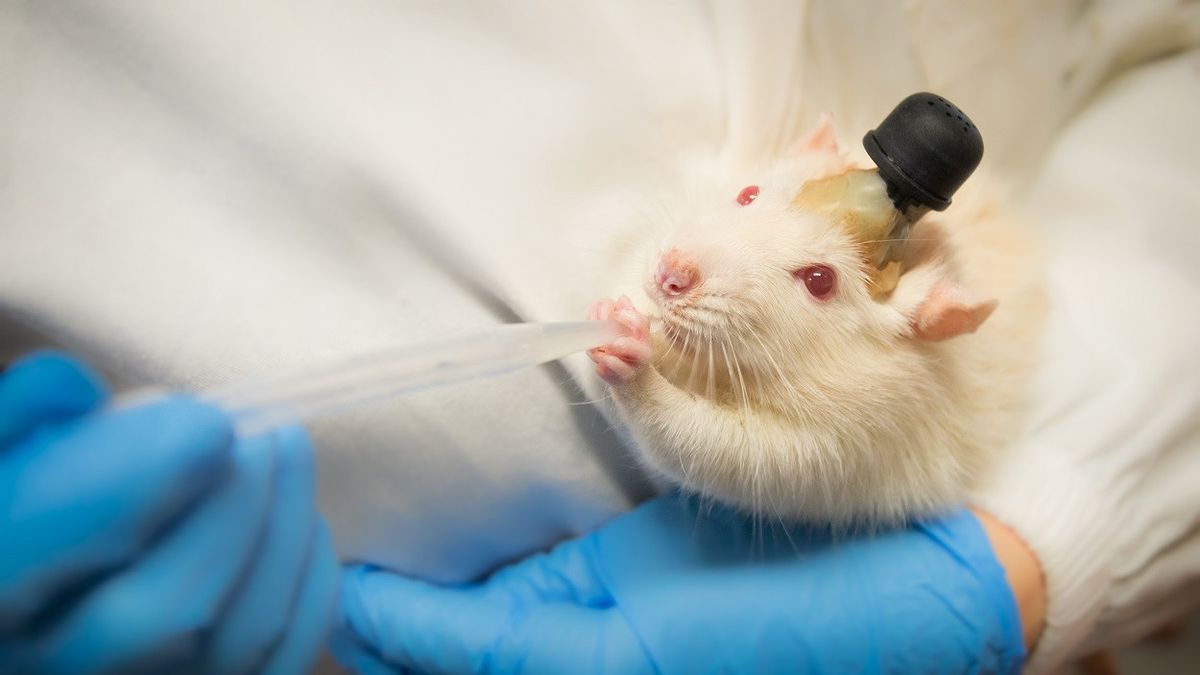JAKARTA - Swiss citizens rejected a proposal by animal rights activists to make Switzerland the first country to ban medical and scientific experiments on animals, but agreed to tighter restrictions on cigarette advertising in a referendum held on Sunday.
Only 21 percent of voters supported a ban on animal experiments, with 79 percent against, according to government figures, in a national referendum held under Switzerland's tradition of direct democracy.
Supporters want to stop the tests, saying they are unethical and unnecessary, but are met with opposition from the country's powerful pharmaceutical lobby, which warns of the economic damage the ban could inflict.
"We are pleased with the clear rejection of this dangerous initiative," said Rene Buholzer, CEO of lobby group Interpharma.
"This shows that the Swiss population recognizes the central role of research, for public health and prosperity in Switzerland."

Meanwhile, supporters of the referendum say animals in laboratories and used to provide food face serious discrimination.
"Why don't we have more empathy for them?" said campaign co-president Renato Werndli.
In another vote on Sunday, voters agreed to tighter restrictions on tobacco advertising, with 57 percent in favor.
The restrictions would see such advertisements banned in newspapers, cinemas, the internet, at events and on billboards, with supporters saying such advertisements encourage young people to smoke.
"I support it because it's a shame people are starting (smoking), it's a social phenomenon and it doesn't benefit anyone," said Angela Margeuron, from Carouge.
"We keep hearing that people end up in hospital or die or that they have major health problems, but the ads are still there, of course it's about money, as always."
As previously reported, more than 550,000 animals died in laboratory tests in 2020 in Switzerland, according to government statistics. That figure includes 400,000 mice and rats, nearly 4,600 dogs, 1,500 cats and 1,600 horses. Primates, cattle, pigs, fish and birds were also killed during and after the experiment.
"It's cruel and there's no need to experiment on animals and I believe we can develop drugs without it," said Renato Werndli, a doctor from northeastern Switzerland who launched the initiative under Switzerland's direct democracy system.

Pharmaceutical lobby group Interpharma said the sector, which includes companies such as Roche and Novartis, accounts for 9 percent of the Swiss economy including indirect effects, and generates nearly half of Switzerland's exports.
Interpharma has led industry opposition, saying the proposal would be devastating if adopted.
"Drug research, clinical studies in hospitals and basic research at universities, will no longer be possible," said Interpharma CEO Rene Buholzer.
Pharmaceutical company bosses say a ban on animal testing could lead to the expiration of new drugs.
"I think you have seen in times of COVID-19 how important it is to find new vaccines, how important new drugs are. And they have been tested on animals," Idorsia Chief Executive Jean-Paul Clozel told Reuters.
Separately, Maries van den Broek of the University of Zurich conducted a study implanting tumors into mice, to study how their immune systems could be strengthened to fight cancer.
"Because we don't understand even 10 percent of the processes that occur inside tumors, it's not possible to use computer models or cell culture to understand the complex biology of cancer."
To note, in addition to the two votes above, the government was defeated in two other votes on Sunday. First the elimination of the 1 percent tax for equity increases. Second, increasing financial support for the media.
The English, Chinese, Japanese, Arabic, and French versions are automatically generated by the AI. So there may still be inaccuracies in translating, please always see Indonesian as our main language. (system supported by DigitalSiber.id)













